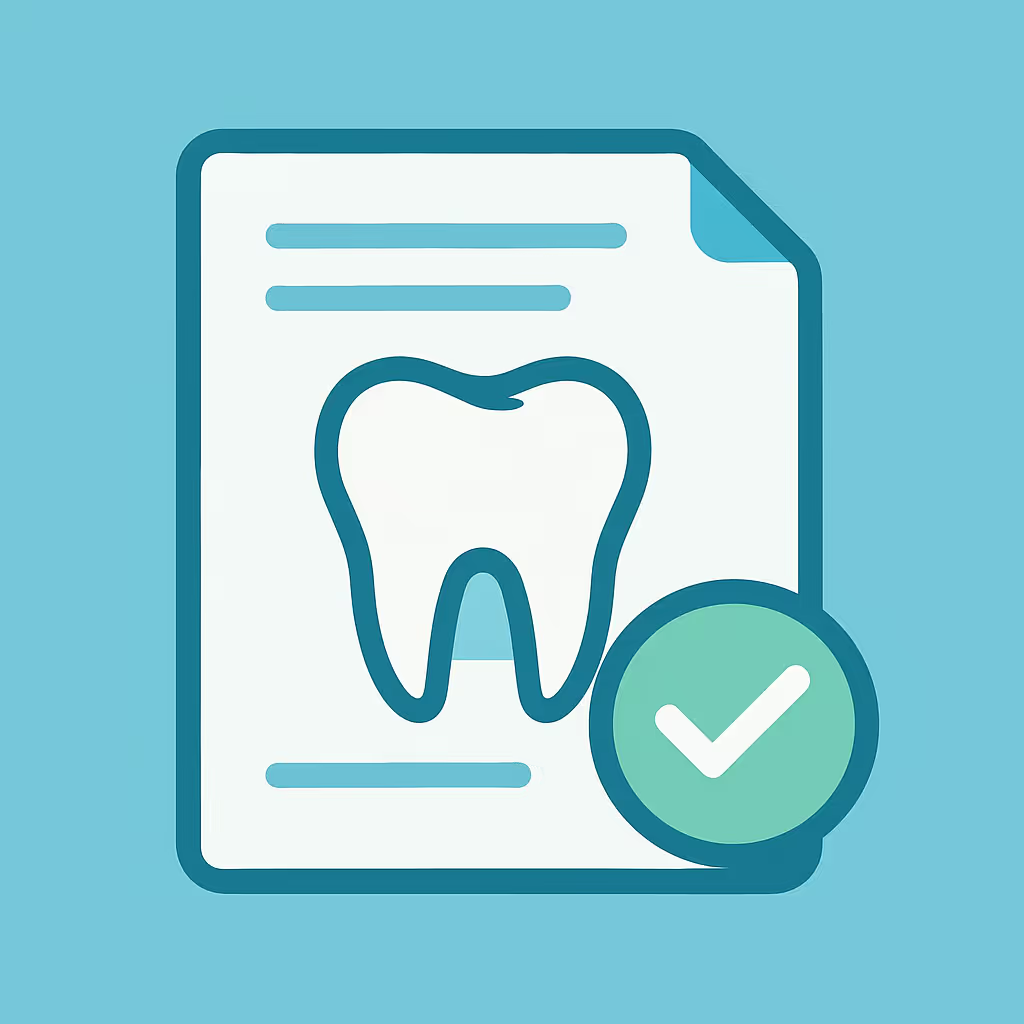Understanding Dental Code D6123
When to Use D6123 dental code
The D6123 dental code is designated for an implant supported retainer for a metal fixed partial denture (FPD) fabricated from titanium or titanium alloys. This CDT code should be used when a patient requires a retainer that attaches to an implant and supports a metal-based FPD, commonly known as a bridge. D6123 is specific to titanium and titanium alloy materials, which are often chosen for their biocompatibility, strength, and durability in restorative dental procedures.
Use D6123 only when the retainer is both implant-supported and made from the specified materials. If the retainer is made from other metals or supports a different type of prosthesis, refer to the appropriate CDT code, such as D6122 for high noble metals.
Documentation and Clinical Scenarios
Accurate documentation is essential for successful claim submission and reimbursement. For D6123, ensure your clinical notes include:
- Detailed diagnosis and treatment plan justifying the need for an implant-supported retainer.
- Material specifications (titanium or titanium alloy) used in the retainer.
- Radiographs or intraoral images showing the implant placement and surrounding tissue health.
- Charting that clearly identifies the location and type of prosthesis being supported.
Common clinical scenarios for D6123 include full-arch implant bridges, partial edentulism requiring a fixed bridge, or cases where titanium is the preferred material due to allergies or patient-specific considerations.
Insurance Billing Tips
To maximize reimbursement and minimize denials when billing D6123:
- Verify patient benefits before treatment, specifically for implant-supported prosthetics and titanium materials.
- Submit a detailed pre-authorization with supporting documentation, including clinical notes, radiographs, and material invoices if requested by the payer.
- Use precise CDT coding and avoid upcoding or miscoding. If multiple retainers are placed, list each with the corresponding tooth/implant number.
- Review EOBs (Explanation of Benefits) carefully. If a claim is denied, check for missing documentation or coding errors and file a timely appeal with additional supporting evidence.
- Track AR (Accounts Receivable) for all implant cases, as these procedures often involve higher fees and longer processing times.
Staying proactive with insurance verification and documentation can significantly reduce claim delays and improve your practice’s revenue cycle management.
Example Case for D6123
Case: A 58-year-old patient presents with missing mandibular molars and requests a fixed solution. After evaluation, two implants are placed, and a titanium-based fixed partial denture is planned. The prosthesis will be retained by custom titanium abutments attached to the implants.
Billing Steps:
- Confirm implant coverage and material allowances with the patient’s insurance.
- Document the clinical rationale for using titanium, including any allergies or medical considerations.
- Submit pre-authorization with radiographs and a detailed treatment plan.
- Upon delivery, bill D6123 for each implant-supported titanium retainer, specifying the location and material in the claim narrative.
- Monitor the claim status and respond promptly to any requests for additional information or appeals.
This approach ensures accurate billing, supports medical necessity, and helps secure timely reimbursement for advanced restorative procedures.





